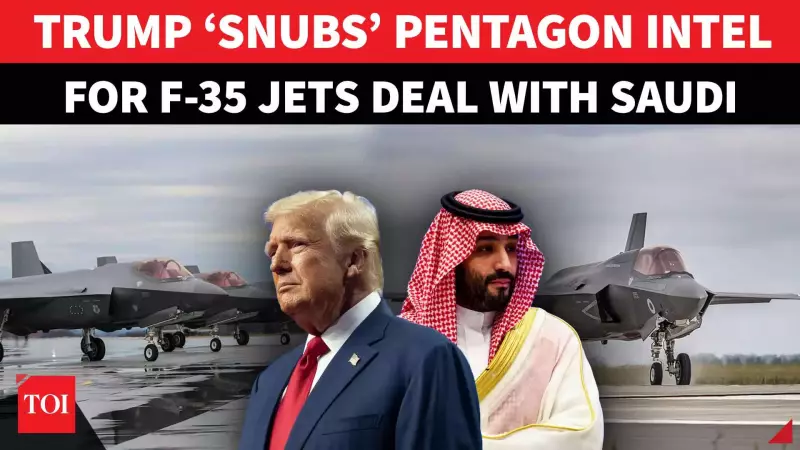
In a strategic move with significant geopolitical implications, former US President Donald Trump has indicated his approval for a massive defence deal with Saudi Arabia, directly linking it to the kingdom's potential normalization of relations with Israel.
A Deal for Diplomacy: F-35 Jets on the Table
Aboard Air Force One, President Trump confirmed his readiness to move forward with the sale of advanced F-35 stealth fighter jets to Riyadh. He explicitly connected this high-stakes arms agreement to Saudi Arabia's possible entry into the Abraham Accords, a series of US-brokered agreements normalizing ties between Israel and several Arab nations.
The proposed deal involves 48 F-35 jets, a number that Trump suggested could even be exceeded, as stated ahead of Saudi Crown Prince Mohammed bin Salman's scheduled visit to Washington. This potential mega-deal underscores the administration's strong desire to cement a diplomatic breakthrough between two of America's key Middle Eastern partners.
Pentagon's Grave Concerns Over China Ties
However, this push for a diplomatic win is facing serious internal resistance from the US Department of Defense. Officials at the Pentagon have raised deep-seated concerns about the risks associated with transferring such sensitive military technology.
The core of their apprehension lies in Saudi Arabia's growing strategic and military cooperation with China. Of particular alarm to US defence officials is the ongoing ballistic missile collaboration between Riyadh and Beijing. The fear is that this relationship could potentially compromise the advanced stealth and avionics technology of the F-35, America's most sophisticated fighter jet.
Geopolitical Gambit: Weighing the Consequences
This situation places a complex geopolitical dilemma at the forefront. On one hand, the Trump administration appears to be prioritizing the monumental achievement of adding Saudi Arabia to the Abraham Accords, a foreign policy legacy project. The normalization of ties between Riyadh and Jerusalem would represent a historic shift in the Middle Eastern political landscape.
On the other hand, the move seemingly overlooks urgent warnings from the nation's top military establishment. The Pentagon's worries about technology security highlight a potential conflict between immediate diplomatic ambitions and long-term national security interests, especially concerning the technological rivalry with China.
The outcome of this proposed deal, set against the backdrop of Crown Prince Mohammed bin Salman's upcoming visit, will be a critical test of how these competing priorities are balanced, with ramifications for global arms sales and Middle Eastern diplomacy.





